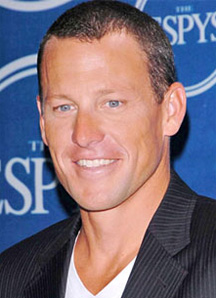PORTO VECCHIO, France, (Reuters) – Tour de France riders protested angrily on the eve of this year’s race yesterday against the burden of suspicion they have been forced to carry because of a previous generation’s doping

“It is degrading to be dragged through the mud and be run down by some who look to make money on our backs,” the riders said in a statement yesterday after Le Monde newspaper printed a headline quoting Lance Armstrong saying it was impossible to win the Tour de France without doping.
American Armstrong, who was stripped of his seven Tour titles for doping and later admitted taking performance-enhancing drugs, had been speaking about the 1999-2005 era during which he crushed the opposition.
Earlier in the week, sports daily L’Equipe said a urine sample from Frenchman Laurent Jalabert in 1998 showed traces of the banned blood-booster EPO when it was re-tested in 2004.
“Enough is enough!!!!!!,’” the riders’ statement further read. “Today the limits of the bearable have been reached!!!! We have for many years shown our will to work for a flawless fight against doping.
“If there was a culture of doping in the 1990s, in the past 15 years our sport has been fighting alone against the plague of doping.
“We are professional bike riders and we are proud of that. But do not treat us like sub-citizens as you have been doing for too long,” the riders’ statement continued.
In 2011, blood tests accounted for 35 percent of tests in cycling while 17.6 percent in athletics and less than 6 percent in tennis.
Cycling pioneered biological passports in 2008, a programme that according to the World Anti-Doping Agency (WADA) “indirectly reveals the effects of doping”.
‘RACING IS CLEANER’
Garmin-Sharp manager Jonathan Vaughters told Reuters he thought cycling was cleaning up its act.
“The science points to a trend that racing is cleaner, that it is possible to win the Tour de France clean,” he said.
“When you look at the climbing speed and look at the numbers. The science firmly points to the fact that doping is on the decline.
“Racing is slower even though the equipment and the training are better. To me there is only one explanation for that – doping has decreased a lot,” Vaughters added.
Tour de France director Christian Prudhomme backed the riders’ complaints, saying that almost every year a doping-related story breaks days before the Tour.
“I can appreciate that some agendas have nothing to do with cycling but 14 times in the last 15 years, it cannot be a coincidence,” he told Reuters.
“For some, the Tour is a unique opportunity to communicate their message.”
Referring to the report about Jalabert, Prudhomme added: “Why give on June 24, 2013, the name of a rider whom it is said doped after a control that occurred on July 22, 1998?.” Garmin-Sharp rider David Millar, a former doper turned anti-doping campaigner, thought it was essential cycling learned from previous mistakes.
“What needs to change is that we need complete truth and transparency into what happened in the 15-year era of the 1990s and early 2000s,” said the former Armstrong team mate, who served a two-year ban after admitting taking EPO.
“So we can understand what mistakes were made and we can make sure those mistakes do not happen again.
“Because I think racing has cleaned up a lot, I think the Tour de France can be won clean.” For all the effort it has been making to clean up, cycling cannot let its guard down, according to Vaughters. “What I hope is that we gather information from the past to find a way to correct those mistakes the next time around.”
